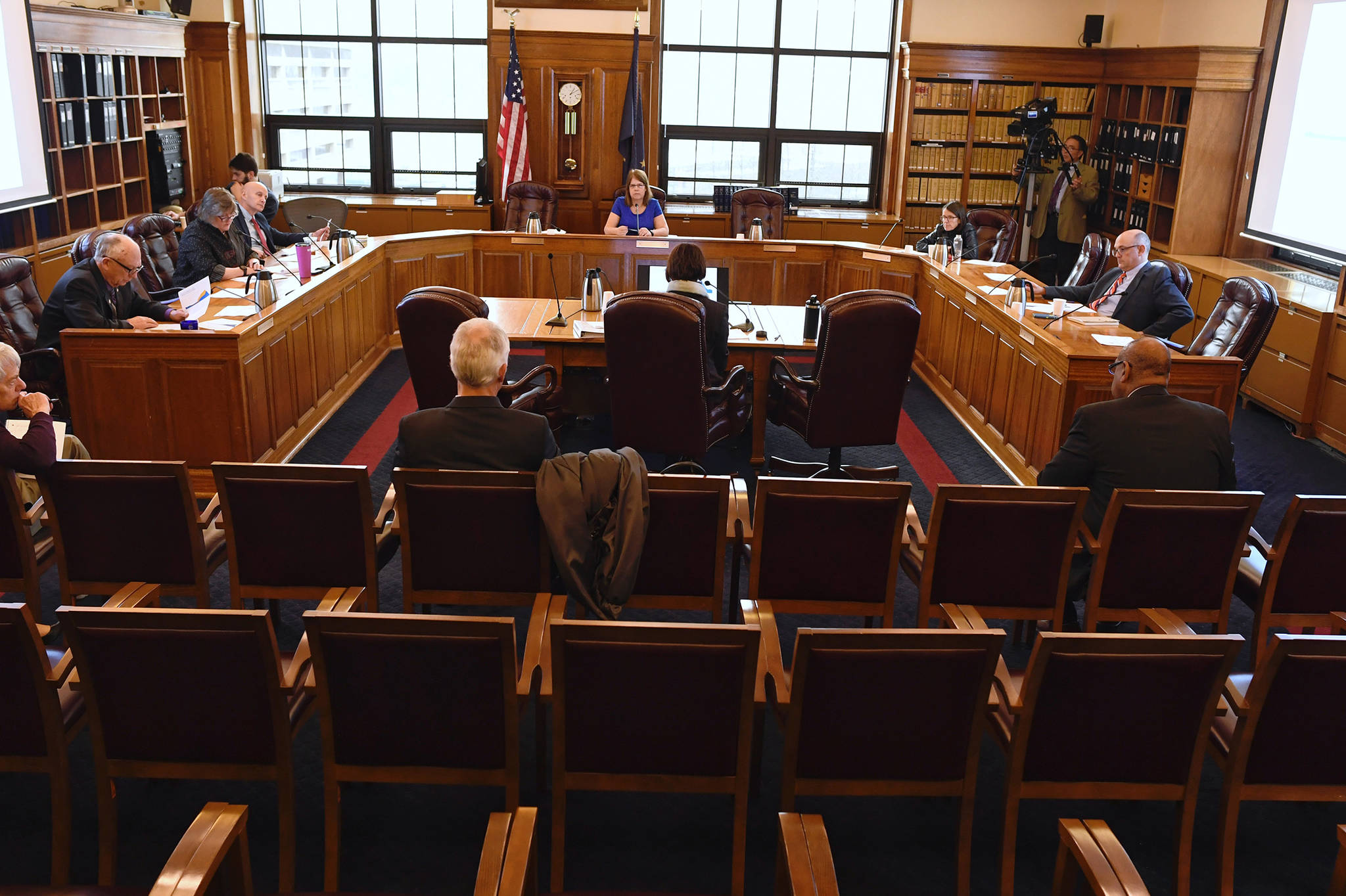Just seven House representatives sat in the House Finance room for a presentation about state debt — the same presentation given to a fully organized and legitimized Senate Finance Committee earlier Monday morning. Four of the normally filled committee seats are empty.
Debt Manager Deven Mitchell treated the room as if it were the normally functioning House Finance committee, addressing Rep. Tammie Wilson, R-North Pole, as chair even though no one can chair a committee that doesn’t technically exist. Wilson sponsored the presentation, calling it an “informational meeting.”
“We have to call them informational meetings since we’re not organized,” Wilson said to the Empire after the meeting. “But these are meetings that we would have had in finance at this point, which keeps us on track as far as when the budget comes out, we won’t have to then do these meetings because we will have already gotten the information.”
Wilson said she’s agreed that there will be six people from both sides of the aisle at such future meetings. If they aren’t in attendance at the start of the meeting, then whatever representative is in the audience can participate in their place.
Both the House and Senate’s finance committees will have to be ready to evaluate the governor’s proposed budget for 2020 that will be released by Feb. 13. State debt, and the state’s credit score, will both come into play when determining the state’s operating budget.
[Budget director’s history of cutting with ‘hatchet, not a scalpel’ sparks concern]
Alaska’s current credit score is one of the lowest in the country, but Mitchell said that rating is subject to change pending how much the Legislature approves for residents’ Permanent Fund Divident payouts this year.
The credit score increased from negative to stable in December 2017 after Legislature passed Senate Bill 26, a bill that categorized the Permanent Fund earnings transfer as an unrestricted general fund revenue, rather than a restricted one. It allowed part of the Permanent Fund to be used for government spending.
But as the future of the Permanent Fund Dividend is in question, after Gov. Mike Dunleavy proposed amending the constitution to cement the payout, the credit rating might also come into question again.
“Whether those revenues will be available for anything other than a Permanent Fund Dividend remains to be seen,” Mitchell said at the Senate Finance committee meeting. “I’m not going to decide what the PFD is going to be. The last year it’s been smaller than the formula. What that highlights is that it’s available for other purposes. There’s choices to be made.”
He explained at the meeting that if the Legislature decides to draw from the Permanent Fund’s earnings reserve to give residents a bigger payout, that will most likely affect the state’s credit rating negatively as it will reduce the unrestricted general fund. This has the most impact on the secondary market and municipal borrowers.
Senate Finance committee Co-Chair Sen. Natasha Van Imhof, R-Anchorage, said a contributing factor for why Alaska has a better cash position is because lower dividends were paid out to residents the last three years.
“We drew less money from the earnings reserve account, therefore left more money to earn in the bull market,” she said.
In regards to the size of the PFD payout, Senate Finance Committee Co-Chair Sen. Bert Stedman, R-Ketchikan, said, “I can assure you it won’t be zero.”
• Contact reporter Mollie Barnes at mbarnes@juneauempire.com or 523-2228.

